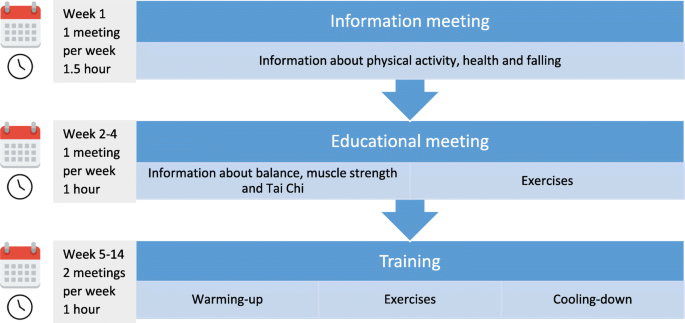The Definitive Guide to Dementia Fall Risk
Wiki Article
Dementia Fall Risk Fundamentals Explained
Table of Contents7 Easy Facts About Dementia Fall Risk ExplainedThe Ultimate Guide To Dementia Fall RiskSee This Report on Dementia Fall RiskThe Facts About Dementia Fall Risk UncoveredDementia Fall Risk - Questions
You could be anxious due to the fact that you have actually had a loss prior to or due to the fact that you have actually seen you're beginning to feel unstable on your feet. You may have discovered modifications to your health, or just feel like you're decreasing a little. Whatever the reason, it isn't uncommon to come to be mindful and lose confidence, and this can quit you doing the points you utilized to do and make you feel much more isolated.If you've had a loss or you have actually started to really feel unstable, inform your physician even if you really feel great otherwise. Your medical professional can inspect your balance and the way you stroll to see if renovations can be made. They might be able to refer you for a falls threat analysis or to the drops avoidance service.
This information can be gotten through interviews with the person, their caregivers, and a review of their clinical records. Begin by asking the individual about their history of falls, consisting of the frequency and circumstances of any current falls. Dementia Fall Risk. Ask about any kind of wheelchair problems they might experience, such as unsteady or trouble strolling
Conduct a detailed evaluation of the individual's medications, paying specific focus to those understood to enhance the threat of drops, such as sedatives or medicines that reduced blood stress. Determine if they are taking numerous medicines or if there have been current changes in their drug regimen. Review the person's home setting for possible risks that can raise the threat of falls, such as bad lights, loose rugs, or lack of grab bars in the shower room.
Dementia Fall Risk Can Be Fun For Anyone
Guide the individual through the autumn threat assessment kind, discussing each concern and videotaping their responses precisely. Guarantee that the specific understands the purpose of the assessment and feels comfortable offering sincere responses. Compute the complete danger score based upon the actions supplied in the analysis type. Determine the individual's risk category (low, medium, or high) based on the total score and the presence of automated risky standing aspects.This plan may include exercise programs to improve toughness and balance, medication adjustments, home modifications, and references to various other specialists as required. Frequently keep an eye on the individual's progress and reassess their threat of falls as needed. Customize the care plan based upon changes in their wellness standing or home atmosphere. Offer ongoing education and learning and support to advertise security and minimize the risk of drops in their everyday living tasks.
Many research studies have actually shown that physical therapy can aid to decrease the danger of dropping in adults ages 65 and older. In a brand-new research (that looked at drops risk in women ages 80 and older), scientists computed the economic effect of choosing physical therapy to stop falls, and they found that doing so saves $2,144, including all the concealed prices of your time, pain, missed life events, and the dollars paid for services.
Get This Report on Dementia Fall Risk
Assessing your equilibrium, stamina, and walking capacity. A home safety and security assessment. Based on the assessment results, your physical specialist will certainly develop a plan that is customized to your certain needs.Older grownups who have problem walking and chatting at the exact same time are at a greater risk of falling. Dementia Fall Risk. To read aid enhance your safety throughout daily activities, your physiotherapist might design a training program that will my site certainly challenge you to keep standing and walking while you do another job. Examples include strolling or standing while counting backwards, having a conversation, or lugging a bag of groceries
Your physiotherapist likewise can recognize which activities you need to avoid to remain safe. Community-based falls avoidance programs aid people to: Lower their worry of dropping. Set objectives for enhancing their physical task. Make their homes safer. Exercise extra to boost their strength and balance. These programs frequently are led by volunteer trains.
What Does Dementia Fall Risk Do?

Measles, or rubeola, is an extremely transmittable, intense viral infectious illness caused by the measles infection. Some people consider measles as just a breakout and high temperature that cleans up in a few days; nevertheless, measles can create major wellness issues, specifically in youngsters more youthful than 5-years-old. The most effective defense against measles is the measles, mumps, and rubella (MMR) injection.
Falls are a common root cause of injury among older news adults. According to the CDC, in one year alone, fall-related injuries added to over $50 billion in medical prices (Dementia Fall Risk). In healthcare facility setups, older grownups go to specifically high threat of falls since their decreased wheelchair from being constrained to an area or bed.
Dementia Fall Risk Can Be Fun For Anyone

She has no history of drops, her stride is stable, and she invalidates with no problems. The previous nurse states that she calls for help to the shower room when she needs to go.
Examples of typical loss interventions/measures include: Ensuring a client's crucial products are within reach. Past recognizing how to utilize the Johns Hopkins Loss Risk Evaluation Device, it's vital that facilities incorporate its use right into an extra comprehensive autumn avoidance strategy.
Report this wiki page